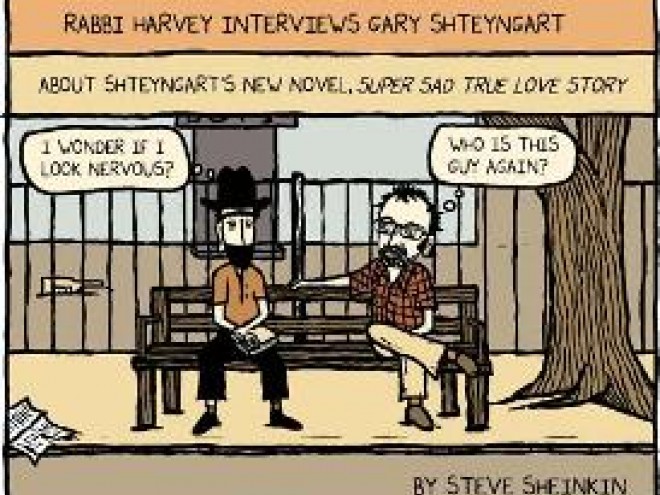It’s been more than twenty years since Gary Shteyngart first dazzled the literary world with his perceptiveness and wit, when he arrived on the scene with The Russian Debutante’s Handbook. In the intervening years his humor has never flagged, and his insights about the human condition have only become more acute and empathetic.
Shteyngart reaches new heights with his latest novel and its title character, the ten-year-old daughter of a Shteyngart-like father. Her dad, Igor Shmulkin, is an intellectual and sometime “manfluencer” who publishes a small magazine. The apple doesn’t fall far from the tree: Vera continually collects new words, and keeps a diary of “things I still need to know.” In a clever stroke, the appearance of each of those words in the narrative becomes a marker of Vera’s growing understanding — not just of language, but also of the world.
The novel is replete with such telling details. At school, for example, Vera is concerned that there apparently aren’t enough fire extinguishers and fire exits in the auditorium. It’s no surprise to learn a bit later that her goal is to become “a woman in STEM” (science, technology, engineering, math).
When we first meet Vera, her life centers on her family and their idiosyncrasies: an annoying brother, a father who’s trying to get funding for his magazine, and a Protestant mom with a trust fund. As the future of the magazine becomes less certain, she worries that the family might need to move.
This uncertainty brings intense anxiety, and Vera’s thoughts turn to something she has always understood: that the mother who raised her is not her biological mother. And she realizes that all she knows about her birth mother is that she is Korean. Now she is determined to learn more. With the help of a friend, she embarks on a journey of discovery that becomes the emotional core of this story.
It’s worth noting that this novel is a kind of speculative fiction, subtly set in the near future and not in the present time. There are hints of dystopian changes in government, as well as signs of technological advance. One of the “characters” is a talking chessboard, a device powered by artificial intelligence that becomes Vera’s confessor and advisor. There’s also a car that talks.
But in the end, it’s Vera who lingers in the reader’s mind. All the characters are sharply etched, but Vera is a wonderful creation – curious, sensitive, and serious. It’s her quest that gives this novel its weight and substance. Of course, Shteyngart’s satirical asides are great fun, as always, and the narrative is rich in witty observations. All told, this is an absorbing, entertaining, multi-layered story that invites reflection and brings delight.
Bob Goldfarb is President Emeritus of Jewish Creativity International.





